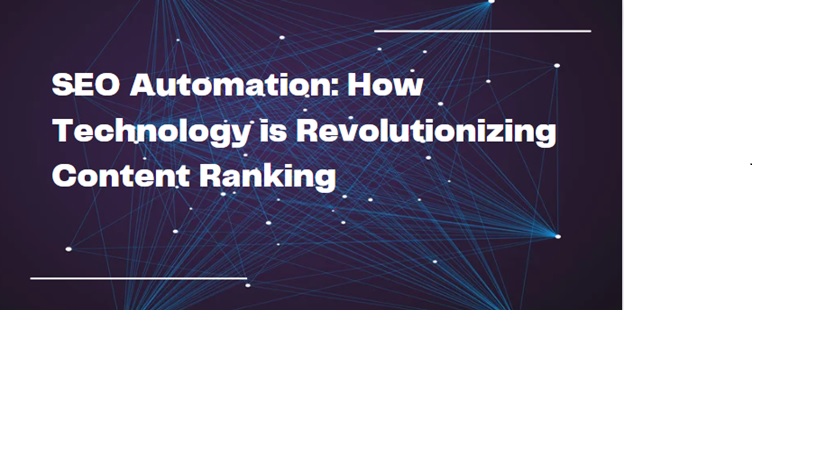In the ever-evolving realm of digital marketing, the landscape of search engine optimization (SEO) is constantly changing. Keeping up with the latest trends and techniques has become paramount for businesses looking to thrive online. One such trend that has been making waves is the integration of technology into SEO practices. In this article, we will explore how SEO automation and technological advancements are revolutionizing content ranking.
Table of Contents
- Introduction
- The Evolution of SEO
- The Role of Technology in SEO
- Automation Tools and Their Benefits
- Content Optimization with AI
- Voice Search and SEO
- Mobile-Friendly SEO
- Video SEO
- User Experience and Page Speed
- The Importance of Data Analytics
- Local SEO with Geotargeting
- Future Trends in SEO Technology
- Case Studies: Success with SEO Automation
- Common SEO Automation Myths Debunked
- Conclusion
Introduction
In the digital age, having a strong online presence is crucial for businesses and individuals alike. SEO plays a pivotal role in ensuring that your content is discoverable by search engines and, ultimately, your target audience. As technology continues to advance, SEO automation has emerged as a powerful tool that can transform the way we optimize and rank content.
The Evolution of SEO
Before delving into the role of technology in SEO, it’s essential to understand how SEO has evolved over the years. In its early days, SEO primarily focused on keyword stuffing and backlink quantity. However, search engines like Google have become more sophisticated, emphasizing the importance of quality content, user experience, and relevance.
The Role of Technology in SEO
Technology has been a driving force behind the evolution of SEO. With the advent of AI and machine learning, search engines can now better understand user intent, context, and content quality. This shift has led to a more user-centric approach in SEO strategies.
Automation Tools and Their Benefits
SEO automation tools have gained immense popularity for their ability to streamline and enhance various aspects of optimization. These tools can perform tasks such as keyword research, competitor analysis, and performance tracking more efficiently than manual methods.
Content Optimization with AI
Artificial intelligence is changing the way content is created and optimized. AI-driven tools can analyze vast amounts of data to identify relevant keywords, optimize on-page content, and even generate content based on specific topics.
Voice Search and SEO
The rise of voice search technology, like Siri and Alexa, has led to a shift in SEO strategies. Optimizing for voice search requires a more conversational and natural language approach, which technology is enabling through voice recognition and natural language processing.
Mobile-Friendly SEO
As more users access the internet via mobile devices, mobile-friendly SEO has become essential. Technology has enabled responsive web design, faster loading times, and improved mobile user experiences.
Video SEO
Video content is on the rise, and search engines are giving it more prominence. Technological advancements in video SEO include video transcripts, captions, and AI-generated video recommendations.
User Experience and Page Speed
A crucial factor in SEO ranking is the user experience, which includes page speed optimization. Technology-driven tools help identify and rectify issues that may affect loading times and user satisfaction.
The Importance of Data Analytics
Data analytics tools provide valuable insights into user behavior and content performance. Utilizing technology, marketers can make data-driven decisions to refine their SEO strategies.
Local SEO with Geotargeting
Geotargeting technology allows businesses to reach local audiences more effectively. Location-based SEO strategies are crucial for brick-and-mortar businesses and service providers.
Future Trends in SEO Technology
The future of SEO is intertwined with technology. As AI and machine learning continue to advance, we can expect even more personalized and accurate search results, further emphasizing user intent and context.
Case Studies: Success with SEO Automation
Numerous businesses have experienced significant growth by embracing SEO automation tools. Case studies highlight real-world examples of how technology-driven SEO strategies have yielded impressive results.
Common SEO Automation Myths Debunked
There are misconceptions surrounding SEO automation, such as it being impersonal or prone to errors. We debunk these myths and emphasize the role of human oversight in SEO automation.
Conclusion
In conclusion, technology has ushered in a new era of SEO where automation and data-driven strategies are key to success. By embracing these advancements and staying informed about the latest trends, businesses and content creators can position themselves for improved online visibility and sustained growth.
In the ever-evolving world of SEO, technology is the driving force behind the transformation of content ranking practices. As we continue to harness the power of automation, AI, and data analytics, businesses and content creators must adapt to stay ahead in the competitive online landscape.




